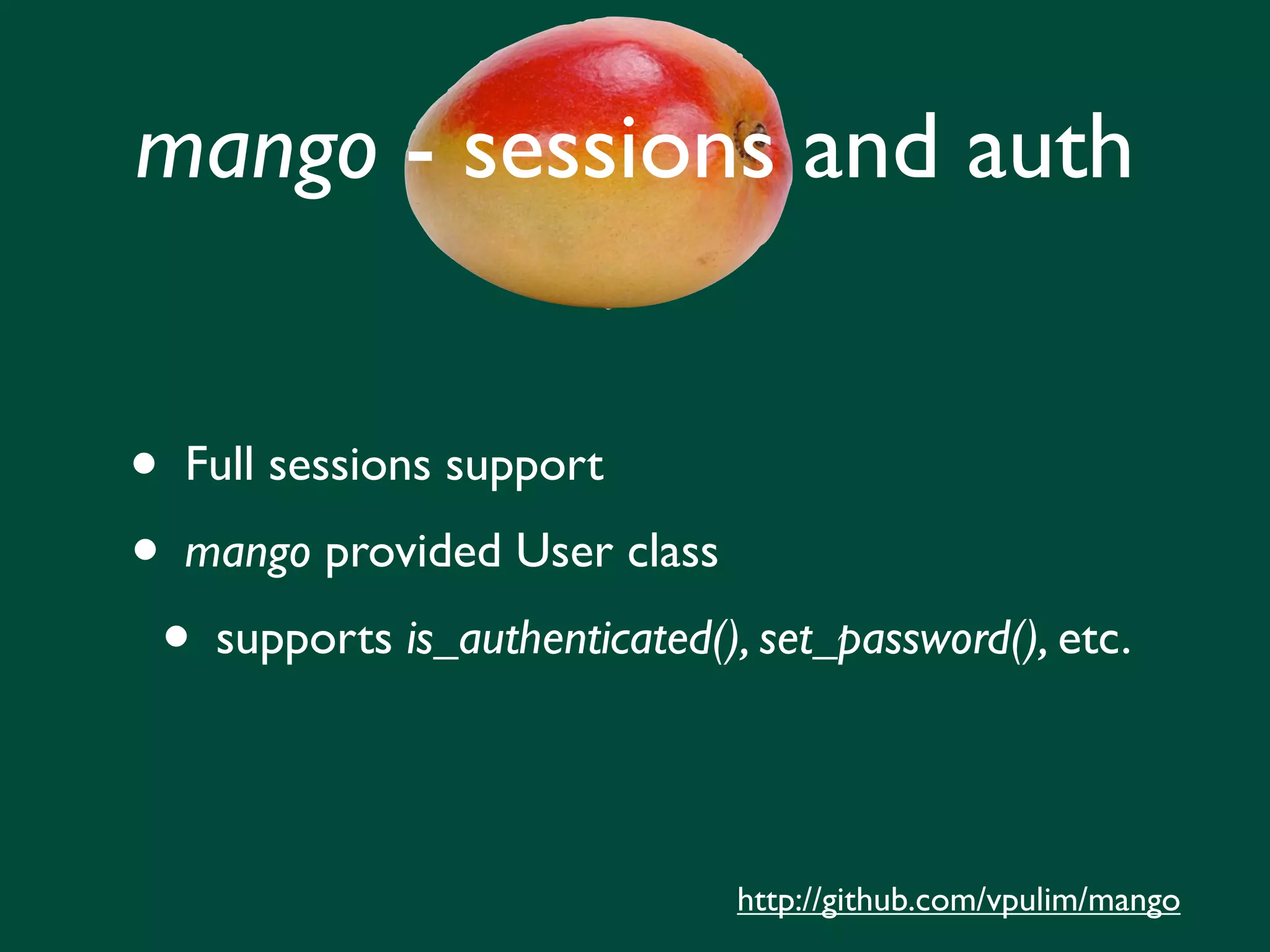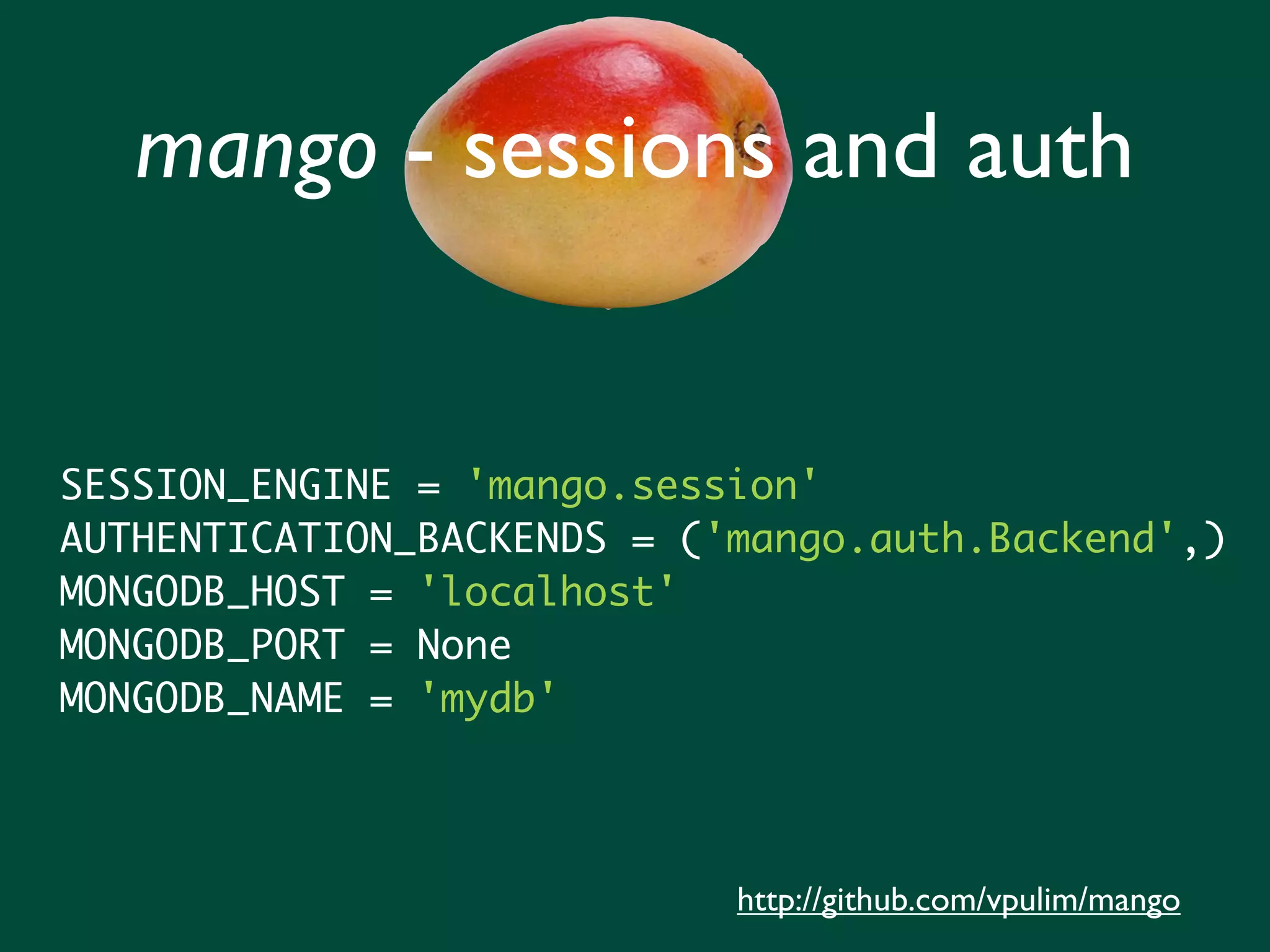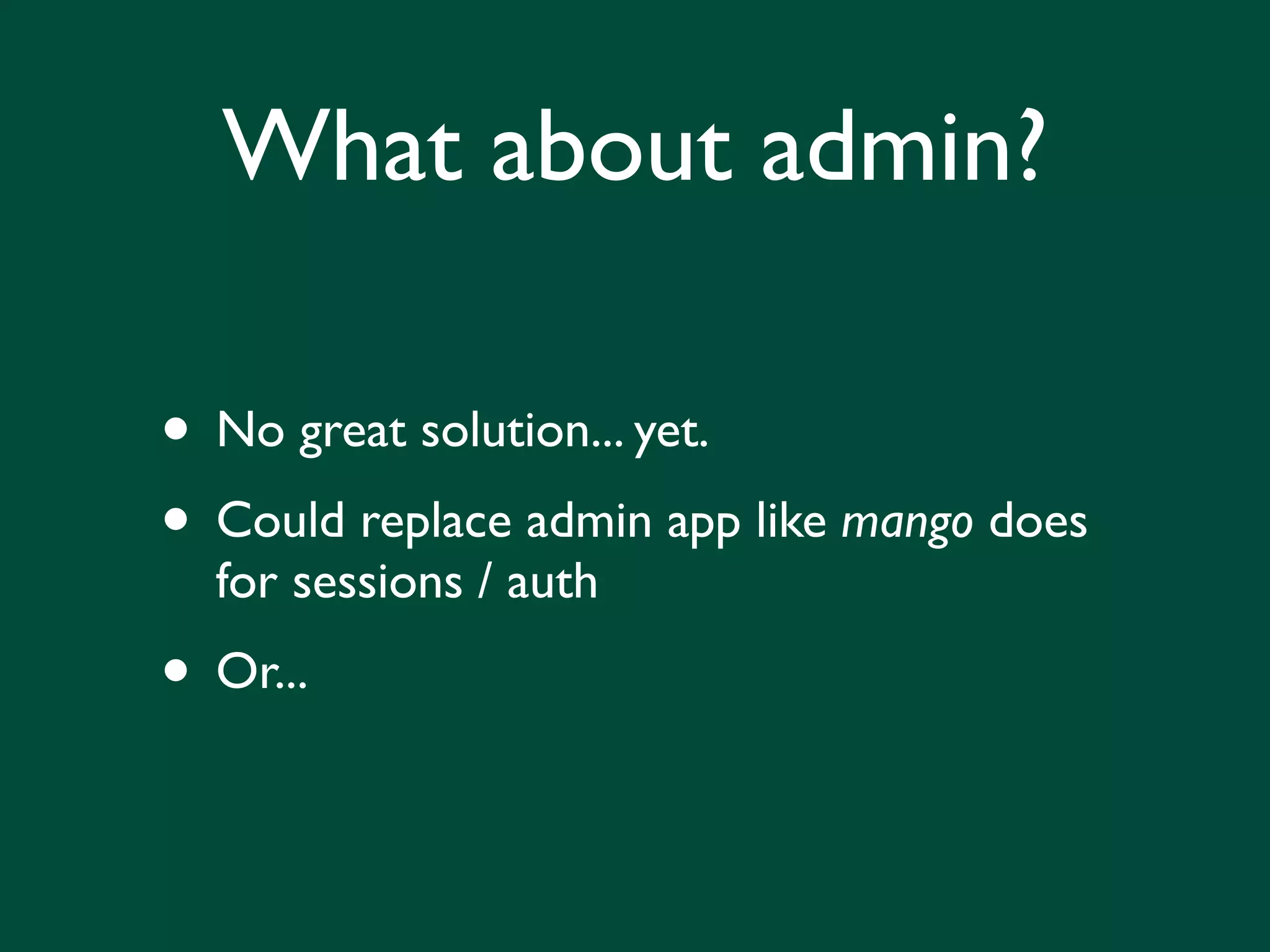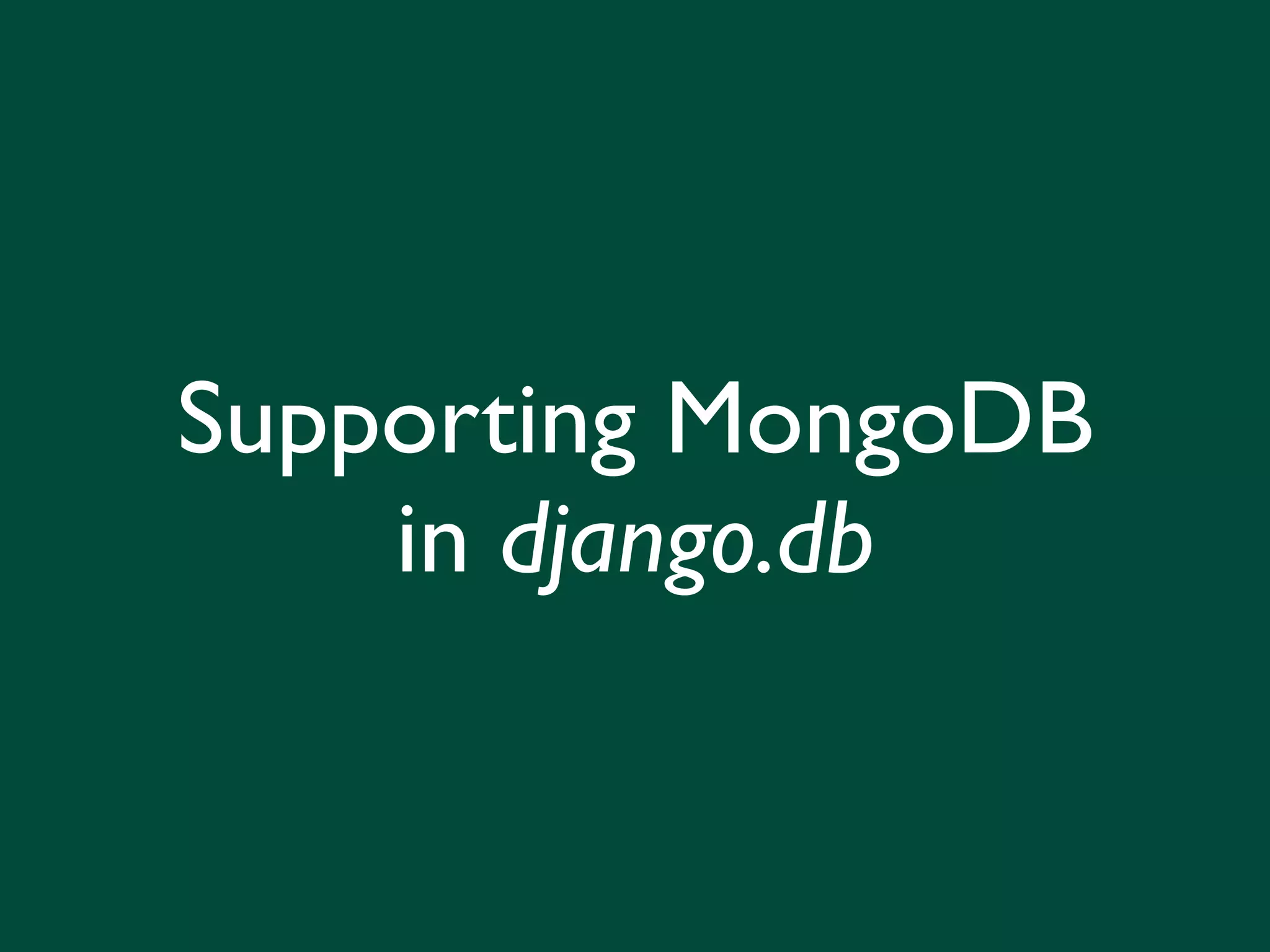While some parts of Django like its URL routing, templates, and caching are not dependent on Django's ORM, integrating MongoDB would require replacing Django's default SQLite database and models with MongoDB-specific database and ODM libraries to support MongoDB's document-oriented data structure and queries. Several third-party libraries provide MongoDB support by replacing Django's ORM with a MongoDB ODM to define schemas and queries.
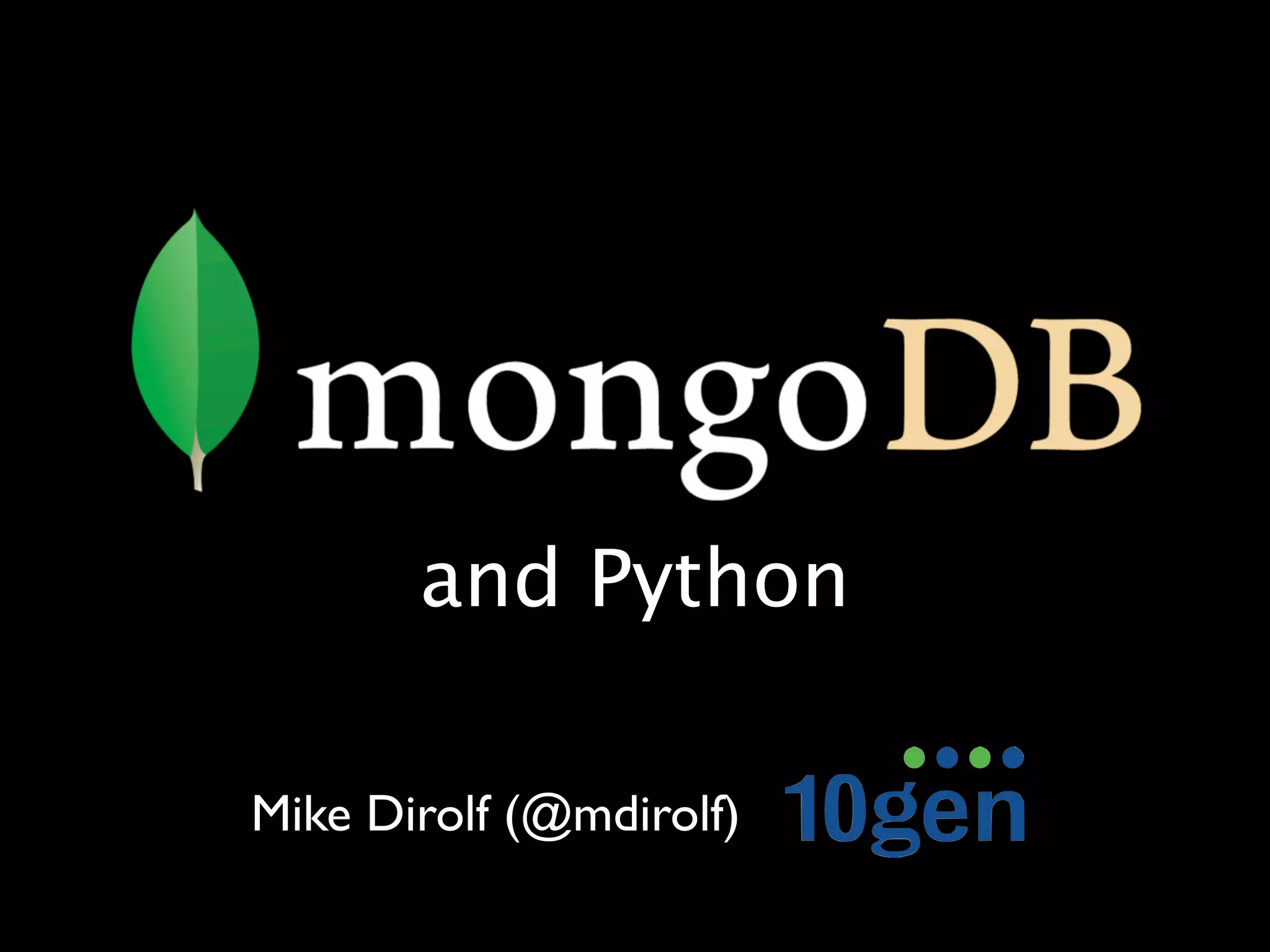
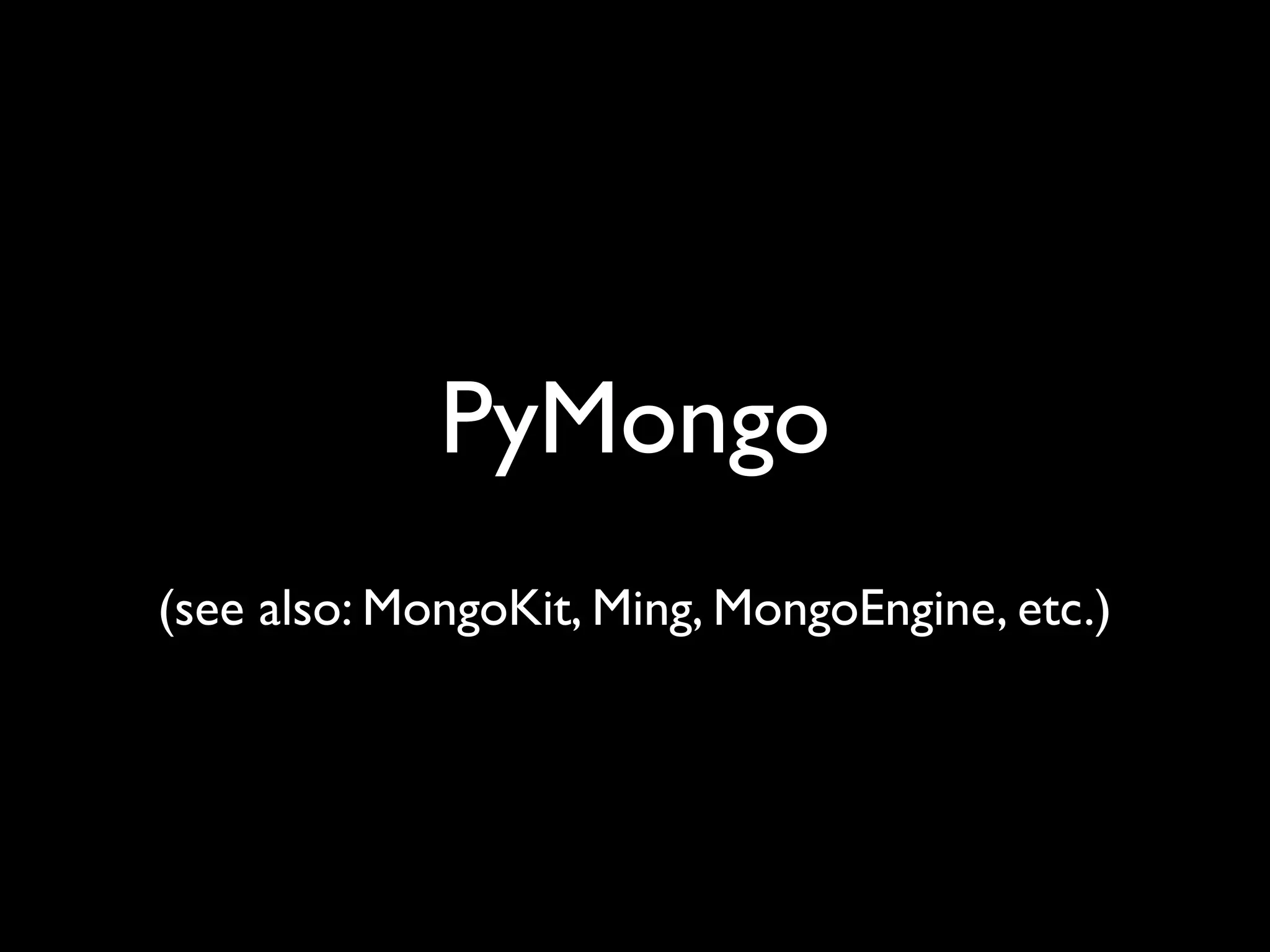
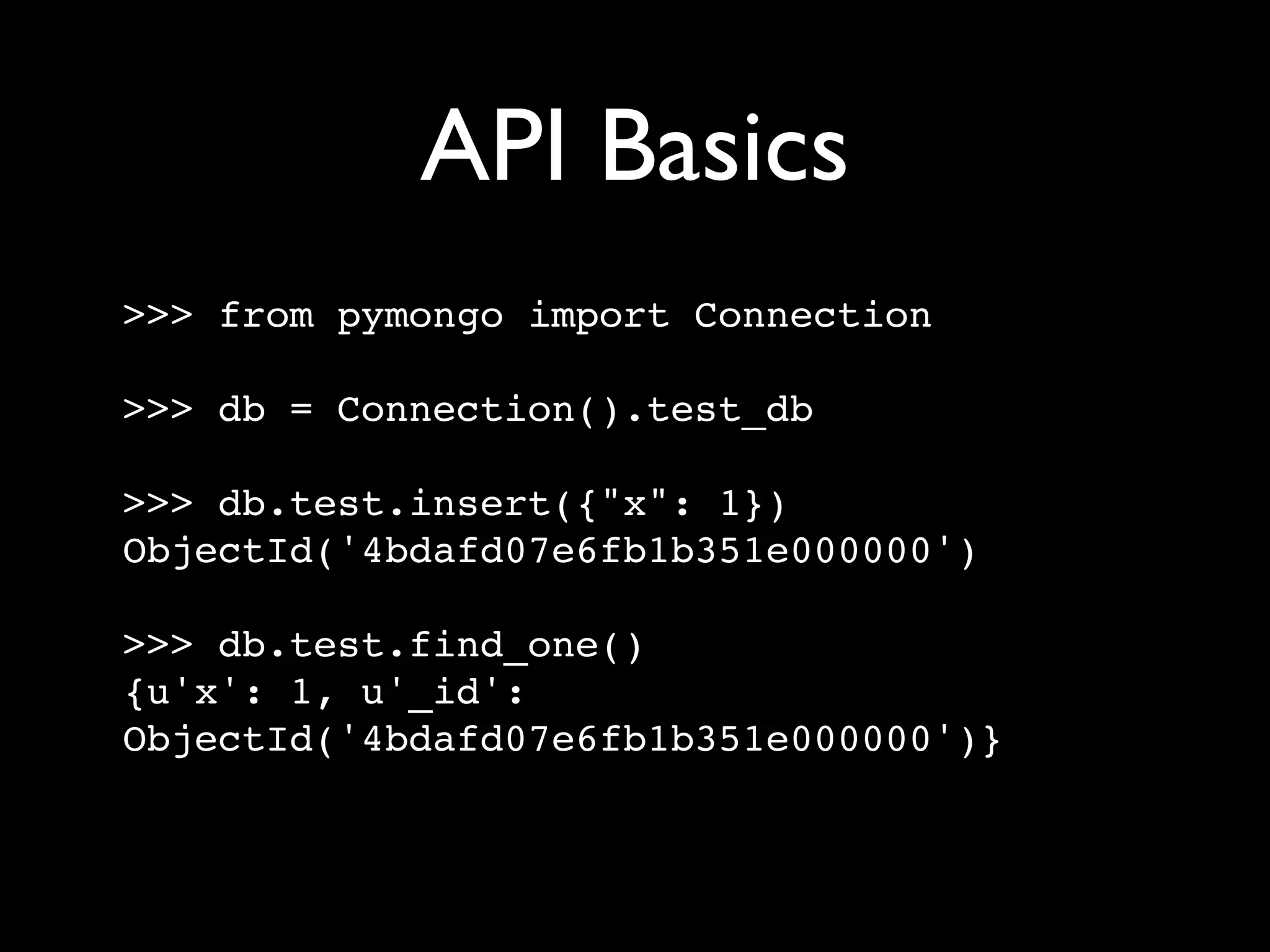
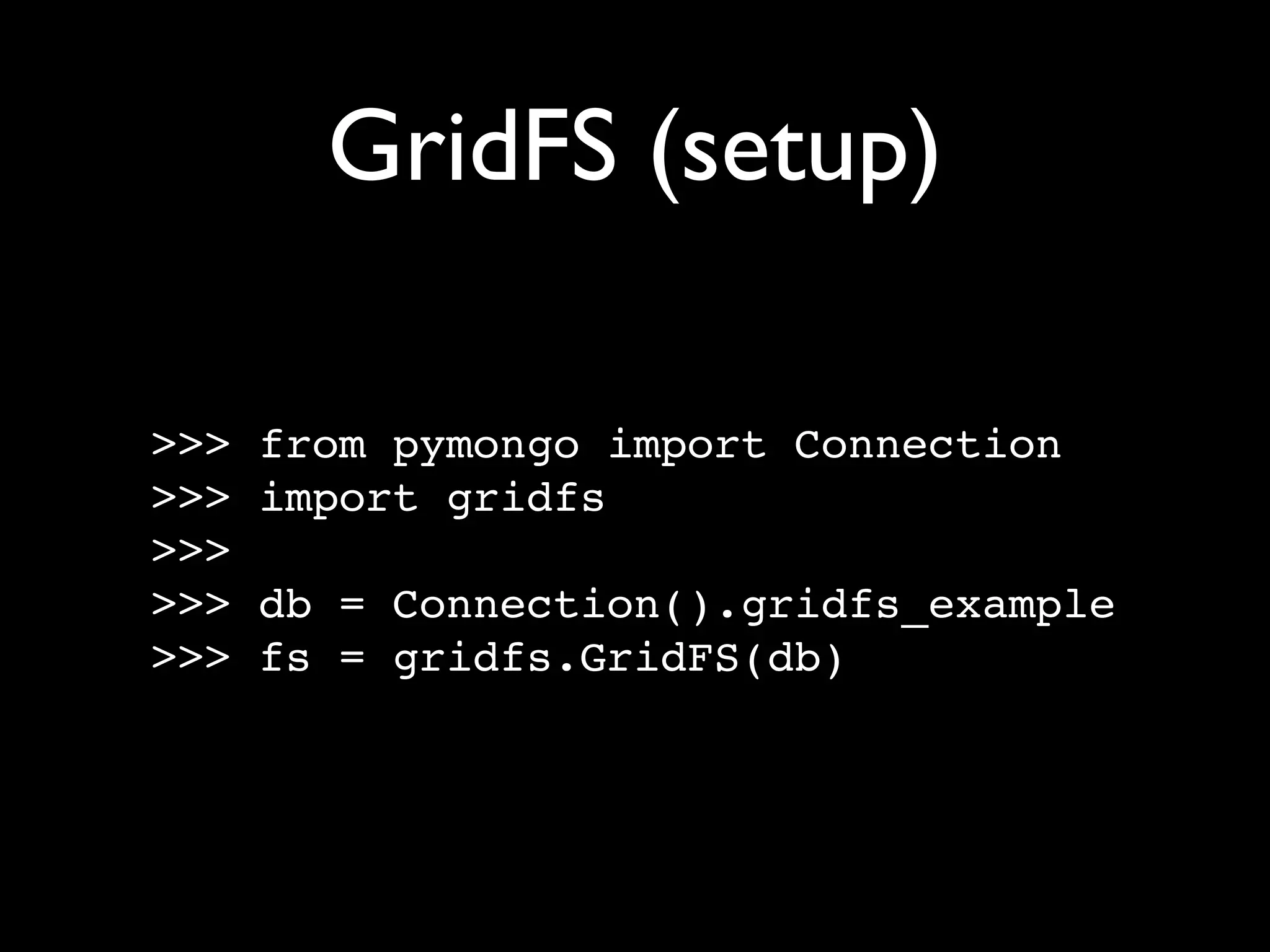
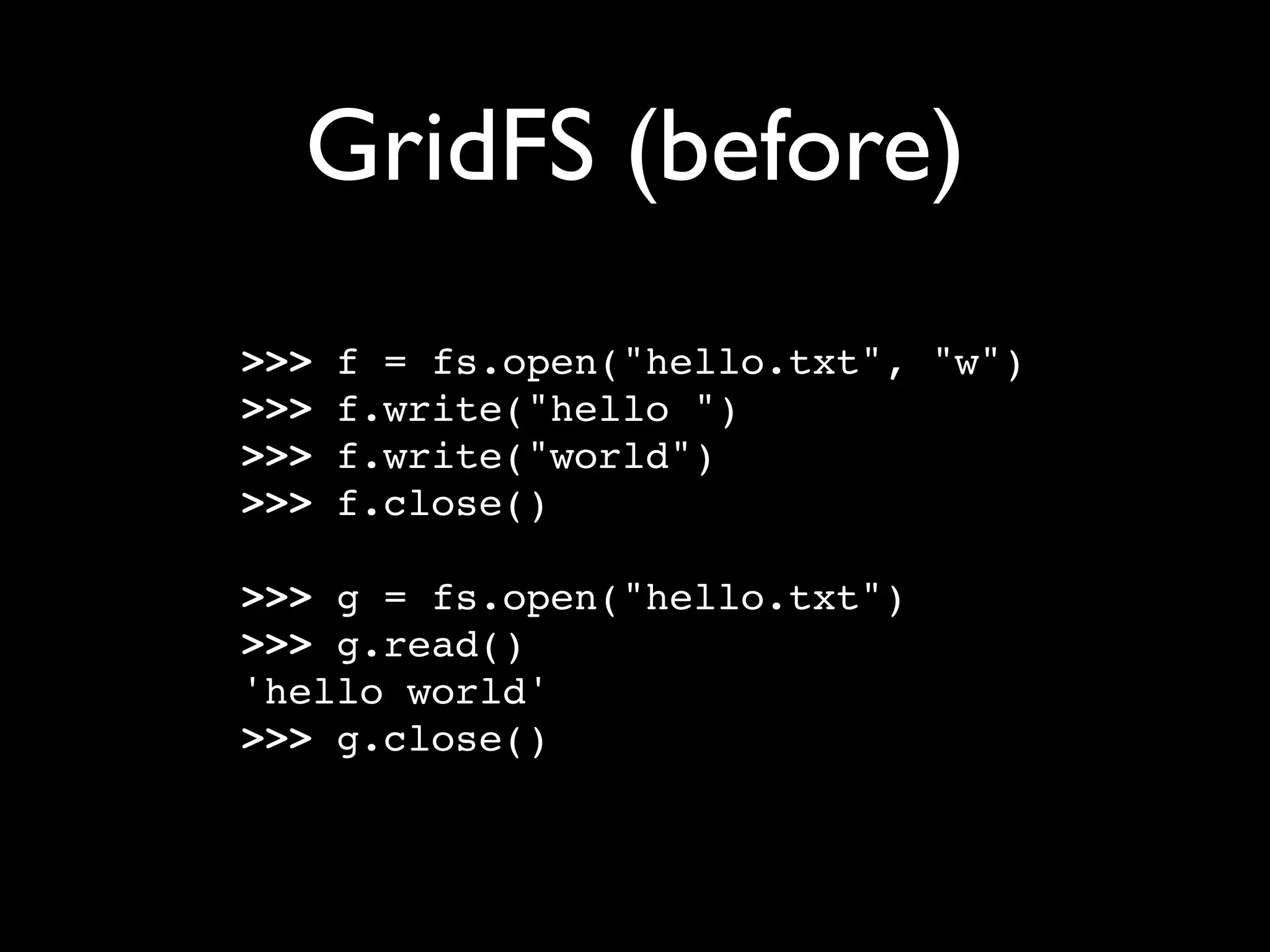
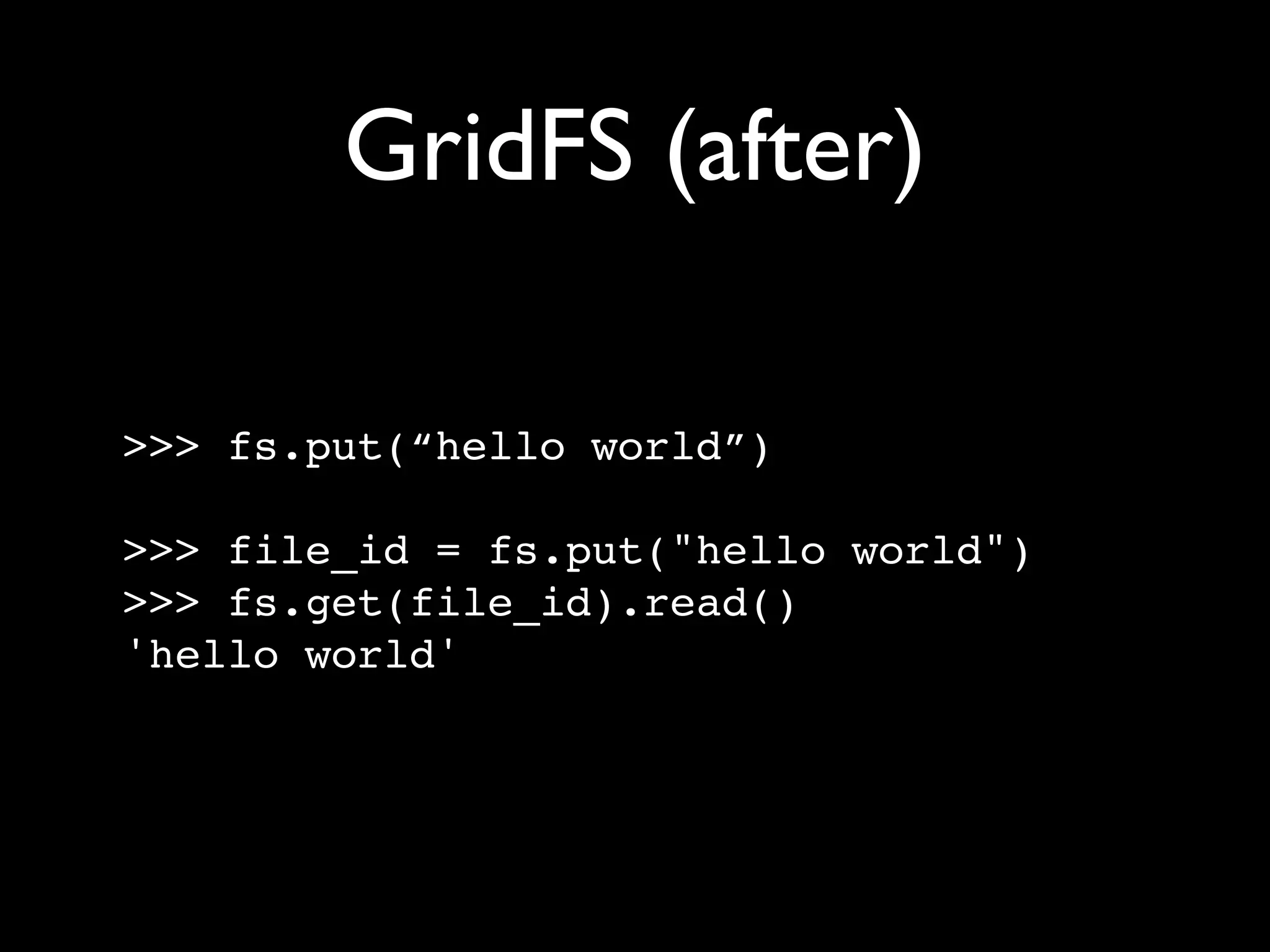
![GridFS (after) >>> myfile = fs.new_file(location=[-74, 40.74]) >>> myfile.write("hello ") >>> myfile.write("world,") >>> myfile.writelines([" and have a ", "good day!"]) >>> myfile.close() >>> out = fs.get(myfile._id) >>> out.read() 'hello world, and have a good day!' >>> out.location [-74, 40.740000000000002]](https://image.slidesharecdn.com/pythonmongosf-100503100650-phpapp01/75/Python-Development-MongoSF-7-2048.jpg)
![Commands (before) >>> db.command({“buildinfo”: 1}) >>> db.command({“collstats”: collection}) >>> db.command(SON([(“filemd5”, object_id), (“root”, file_root)]))](https://image.slidesharecdn.com/pythonmongosf-100503100650-phpapp01/75/Python-Development-MongoSF-8-2048.jpg)
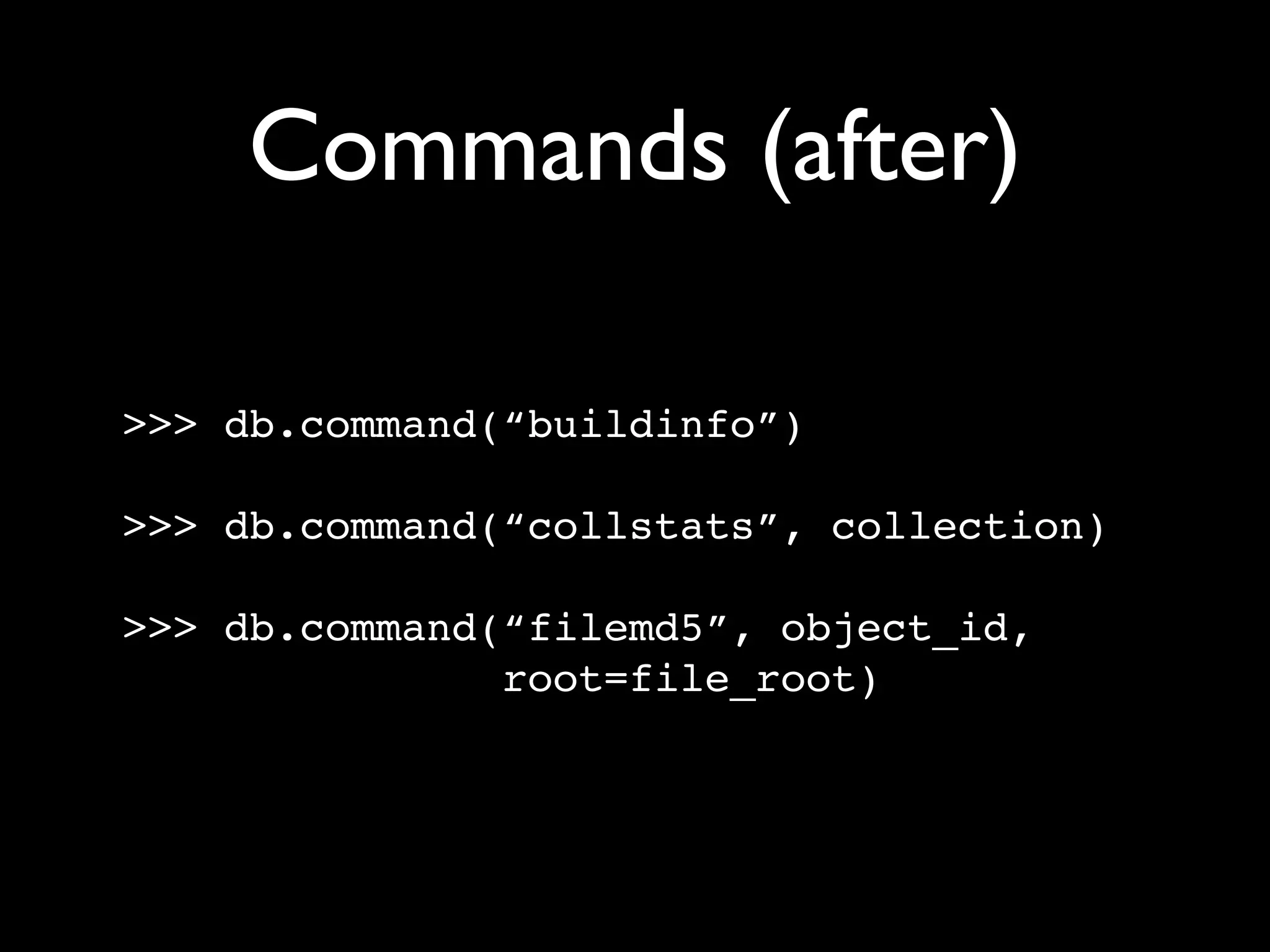
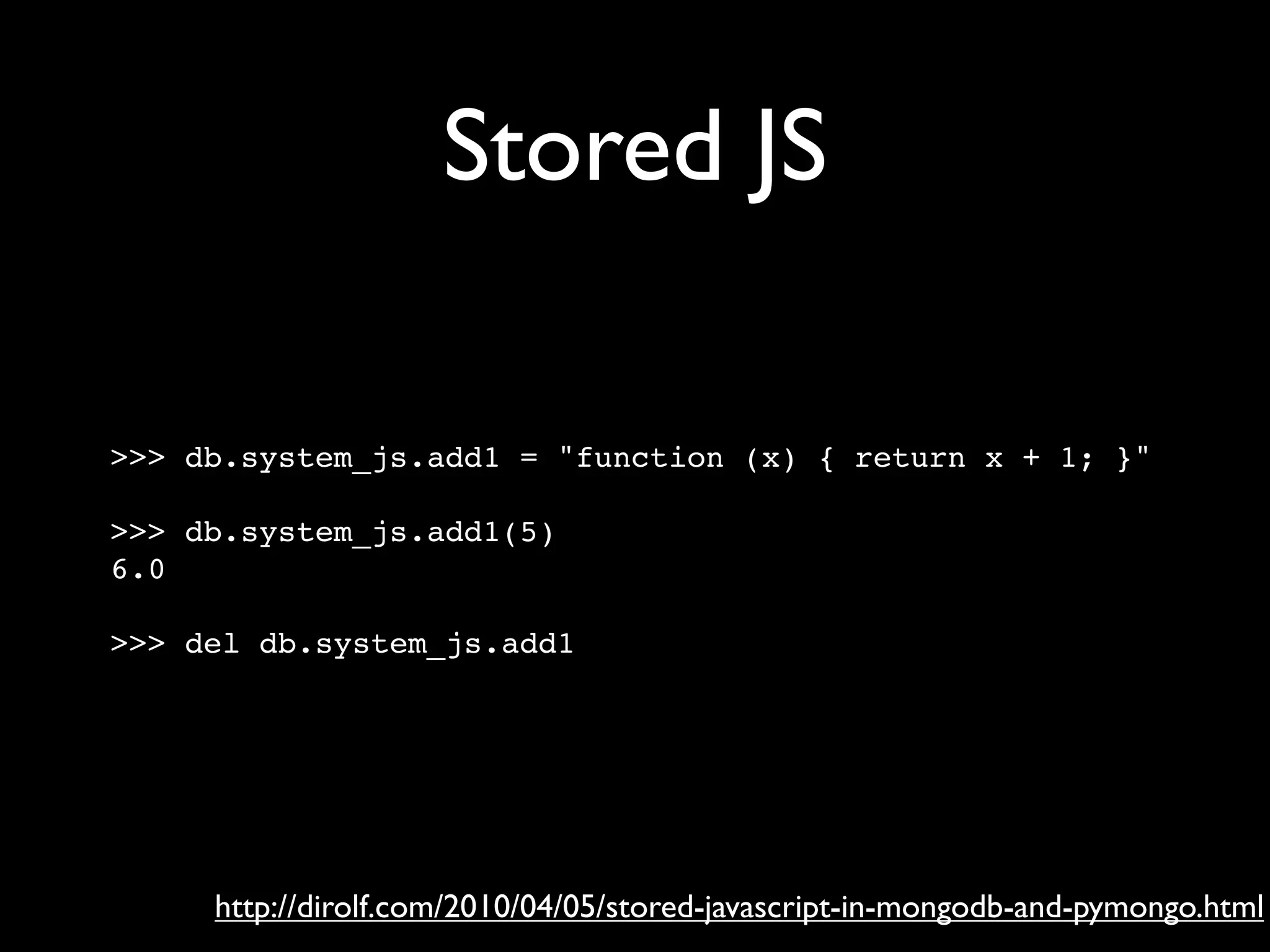


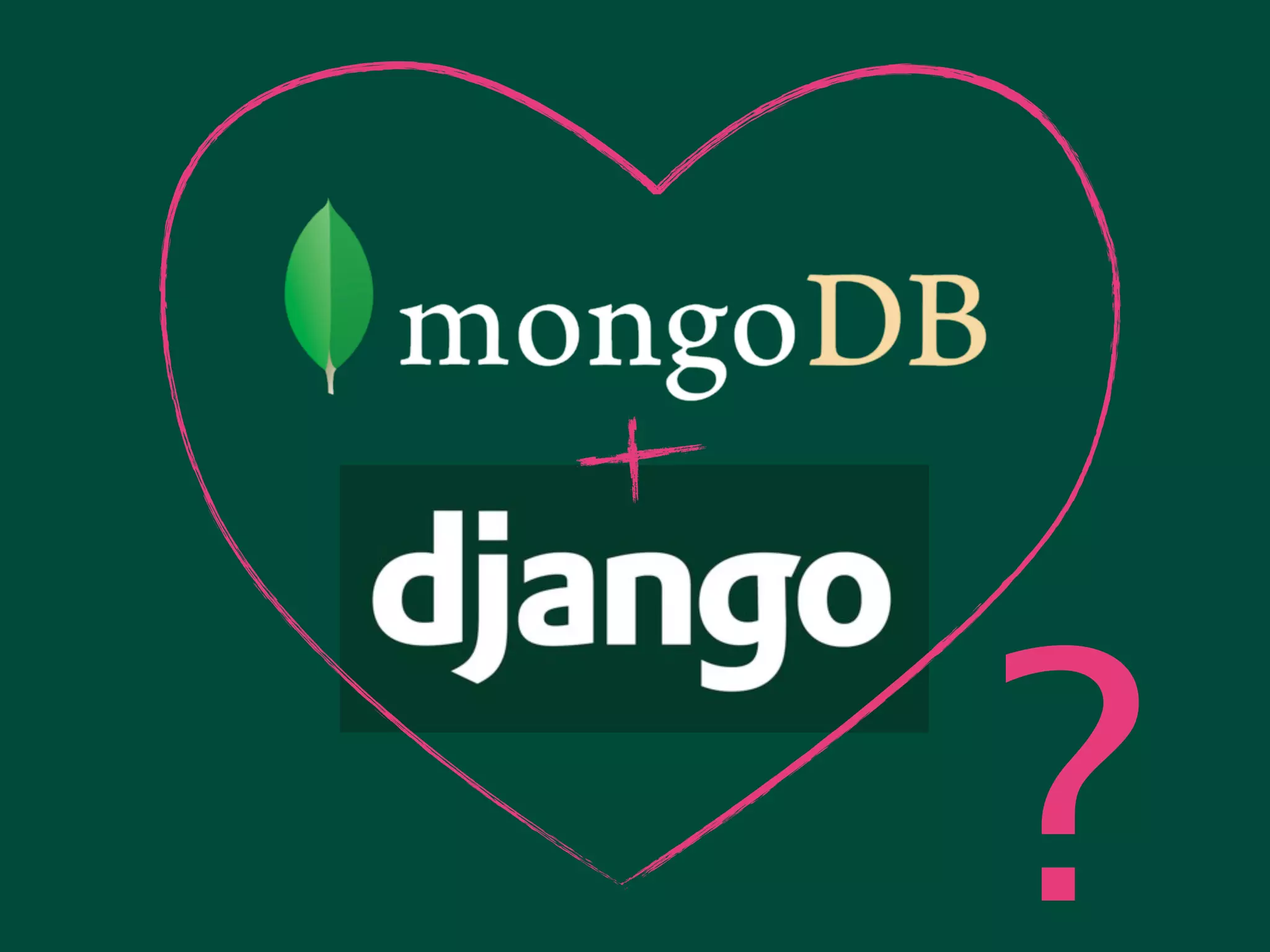

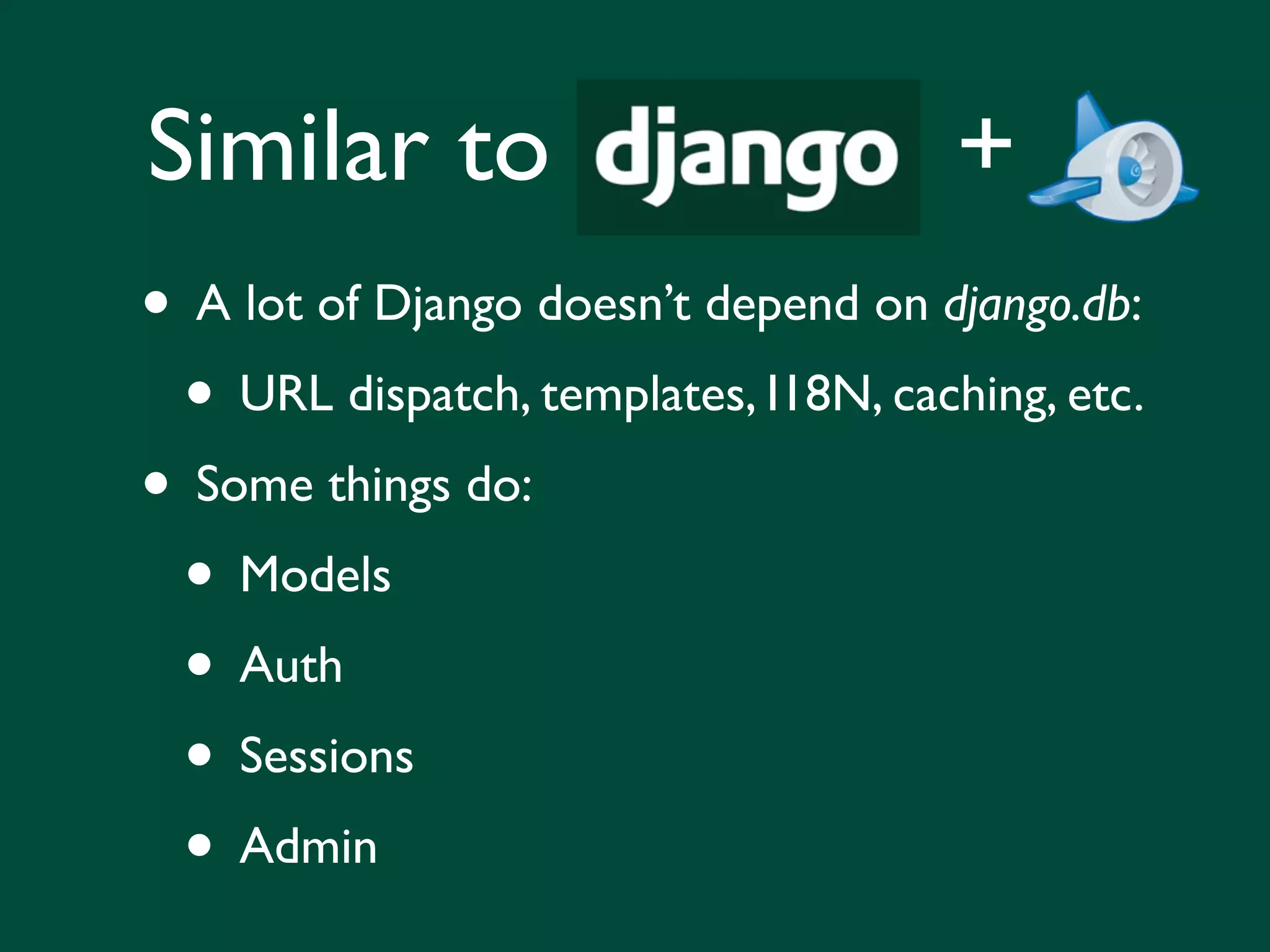
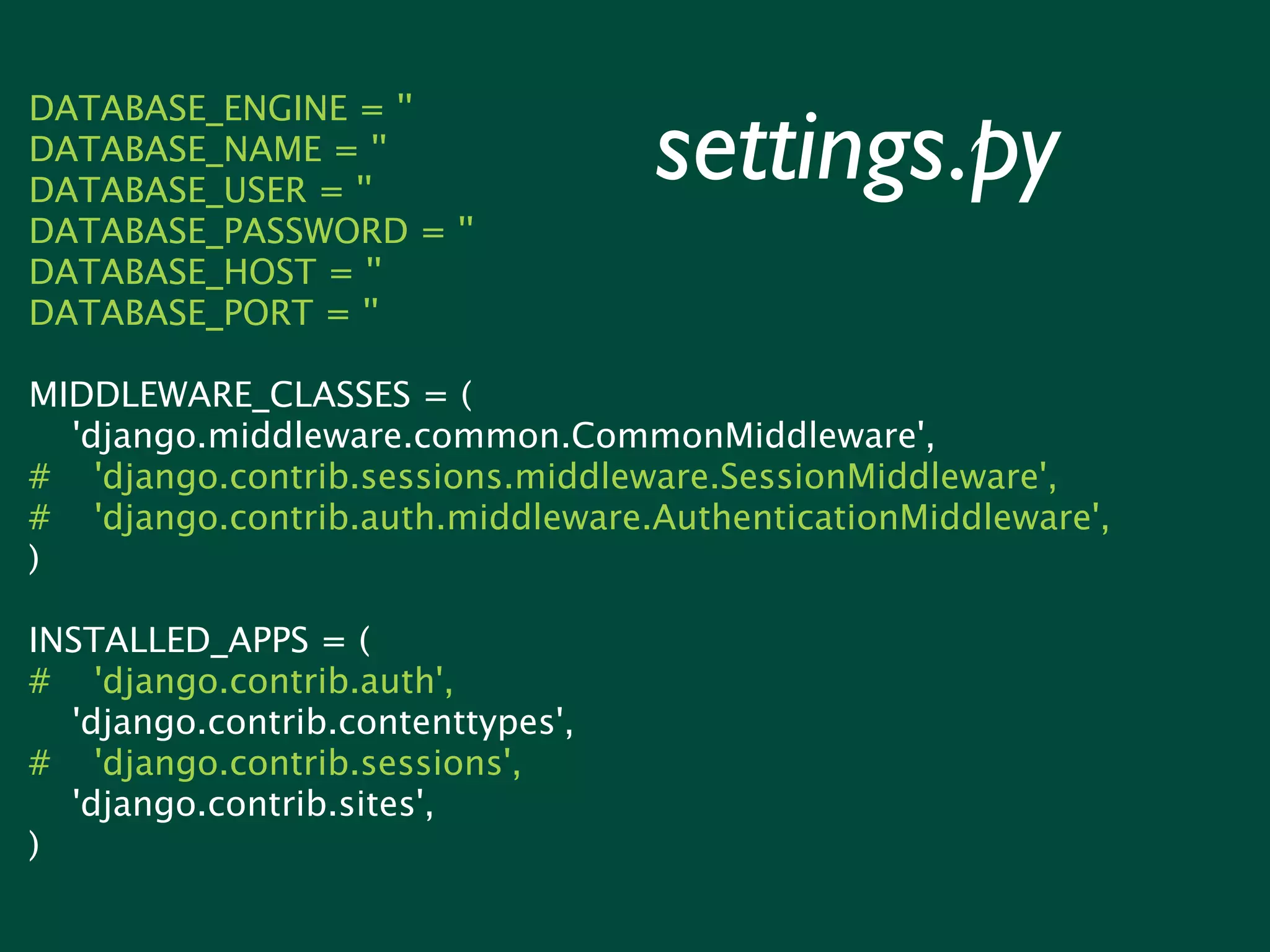
![Representing a Poll {'question': 'Do MongoDB + Django <3 each other?', 'pub_date': datetime.datetime(2010, 1, 21), 'choices': [{'votes': 35, 'choice': 'Yes!'}, {'votes': 2, 'choice': 'No...'}]}](https://image.slidesharecdn.com/pythonmongosf-100503100650-phpapp01/75/Python-Development-MongoSF-17-2048.jpg)
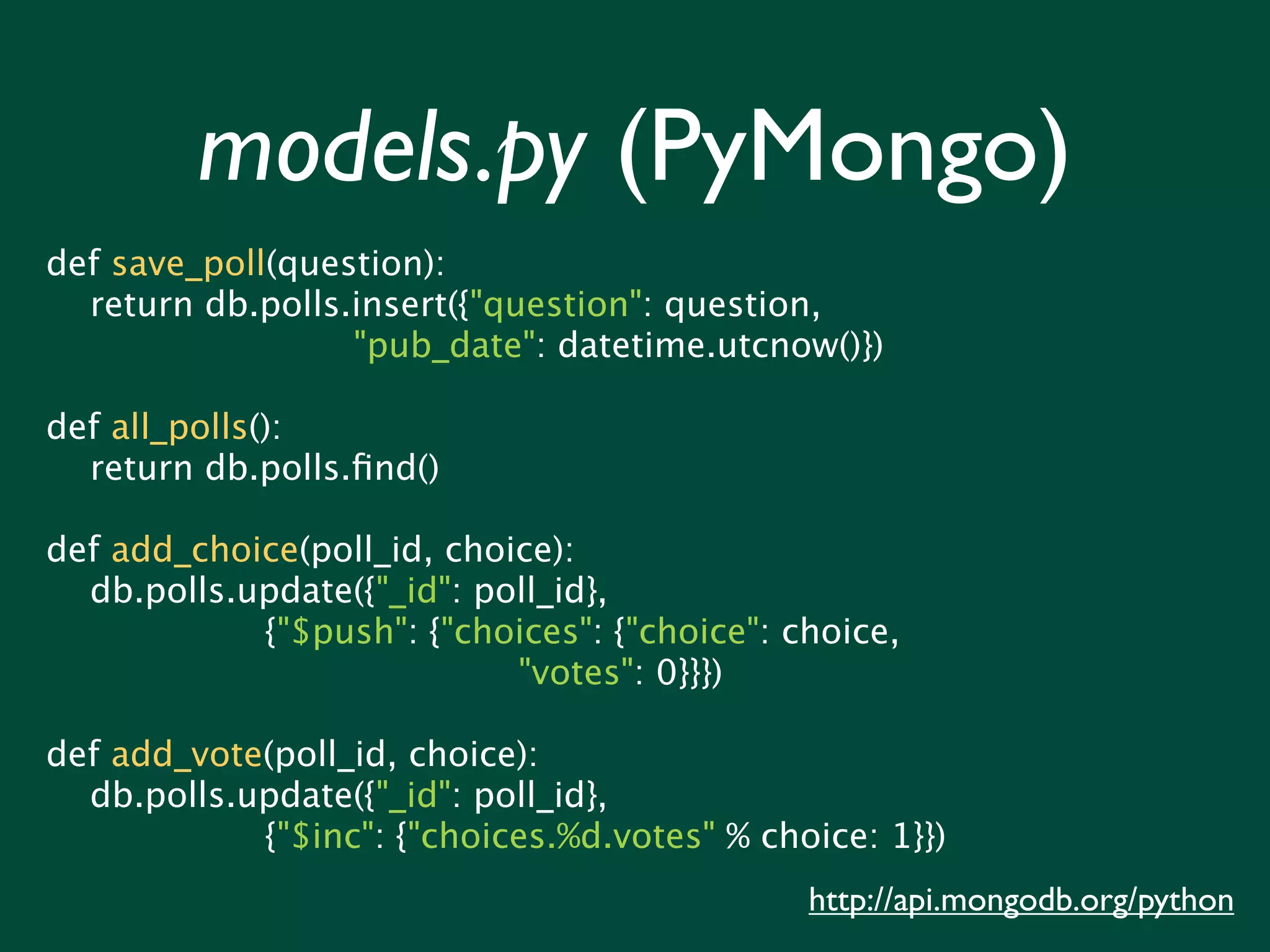
![models.py (MongoKit) class Poll(mongokit.Document): structure = {"question": str, "pub_date": datetime, "choices": [{"choice": str, "votes": int}]} required_fields = ["question"] default_values = {"pub_date": datetime.utcnow} http://bytebucket.org/namlook/mongokit](https://image.slidesharecdn.com/pythonmongosf-100503100650-phpapp01/75/Python-Development-MongoSF-19-2048.jpg)
![models.py (Ming) class Poll(ming.Document): class __mongometa__: session = session name = "polls" _id = ming.Field(ming.schema.ObjectId) question = ming.Field(str, required=True) pub_date = ming.Field(datetime.datetime, if_missing=datetime.datetime.utcnow) choices = ming.Field([{"choice": str, "votes": int}]) http://merciless.sourceforge.net/](https://image.slidesharecdn.com/pythonmongosf-100503100650-phpapp01/75/Python-Development-MongoSF-20-2048.jpg)
